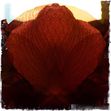ASSAY: A JOURNAL OF NONFICTION STUDIES
1.1
1.1
Assignment #2: The Application EssayCore Assignment:
Craft a 3-part academic essay that explains how a certain set of concepts from rhetorical theory can be applied to a specific “inquiry” or “creative nonfiction” essay to show something interesting about that essay. Your academic essay should include at least the following thinking moves:
Guidelines:
Research component:
Advice for Assignment: This assignment involves two major kinds of essayistic thinking: inquiry and argument. The inquiry part is exploring just what a certain set of theoretical tools will show you in the essay you choose to analyze. The argument part is shaping what you learn through your inquiry into a contribution to some ongoing conversation. It matters a lot which essay you choose to write about. You’ll be spending some time with this piece. Similarly, it matters what theoretical concepts you choose to use. Select ones that intrigue you. For finding scholarly conversations about your chosen essay, searching 1) the MLA Bibliography online and 2) JSTOR from a computer linked to the UNL Libraries will turn up a lot. For finding further material on the theoretical concepts we’ll use in the course, the Composition/Rhetoric search engine CompPile.org should be a help. Models: Several of the essays and chapters in our course books are versions of application essays. In the Lopate collection, Art of the Personal Essay, consider:
In Paul Heilker’s The Essay, chapters 2, 3, & 4 are each application essays. In Kristin Dombek and Scott Herndon’s Critical Passages, chapters 6-8 are application essays. In Stephen Jay Gould’s I Have Landed, a preponderance of the essays are application essays, sometimes to writing, sometimes to art, sometimes to politics. Ones I find particularly clear are “The True Embodiment of Everything That’s Excellent” (applying evolutionary theory to Gilbert and Sullivan) and “Syphilis and the Shepherd of Atlantis” (applying modern genome theory to the original 16th century poem where the character Syphilis first appeared). Click here to download the assignment sheet PDF.
|

Robert Brooke is Professor of English at the University of Nebraska-Lincoln, where he directs the Nebraska Writing Project. He is the author of over fifty articles and five books. His most recent project is Writing Suburban Citizenship: Place Conscious Teaching and the Conundrum of Suburbia, which is forthcoming from Syracuse University Press.
